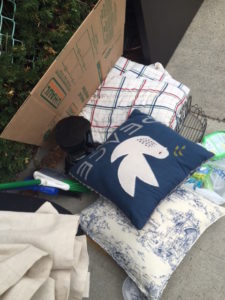[Through a meetinghouse window, May, 2017]
Having spent the day before with a dear and loving friend, settling into meeting for worship on Sunday I found myself reviewing the kinds of love as if Philia or Storge were ice cream flavors: yum!
My personal New York Super Fudge Chunk? Agape. So, as I reviewed, true to (her intense and transcendent and grace-lit) style, Universal/Unconditional Love declared herself In The House so powerfully I was almost brought to my feet to shout Hallelujah!
But didn’t for the same reason I hesitate to write about this, today. For what came to me was a Bible passage getting a lot of play lately. Some might say THE Bible passage; John 3:18: “For God so loved the world that he gave his only Son. . . ”
As a pre-Easter Christian and a woman of faith who experiences God as a verb and not a male pronoun, I’ve carelessly (and callously?) dismissed this sentence. Until Sunday. When it hit me that I’ve carelessly skipped over that . . . so loved the world that. . . bit, too.
But that’s the thing about Agape. It won’t be ignored. She won’t be ignored. Her powerful Love, a warm blanket to keep you warm or to beat out fires* will not be denied. So she’s asking me to find Love in the second-half of John 3:18. She’s asking me to explore if there’s Something in the post-Easter Jesus I need to experience. She’s grateful I didn’t get to my feet on Sunday; she wants me to try to write this, today, as carefully and tenderly as I can. Because we both know how much John 3:18 means to others. (Philia is also In The House.)
So I’m listening. Tasting. Testing.
*as a speaker noted on Sunday











